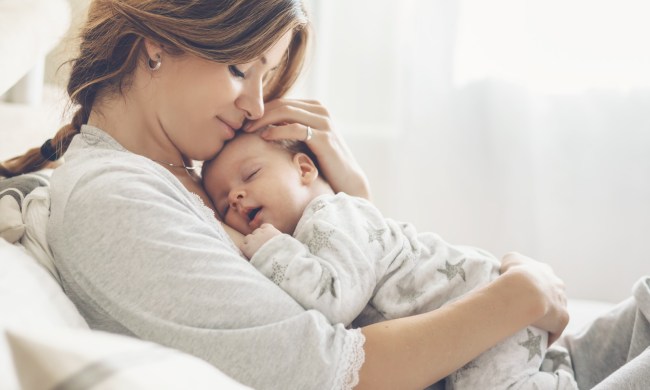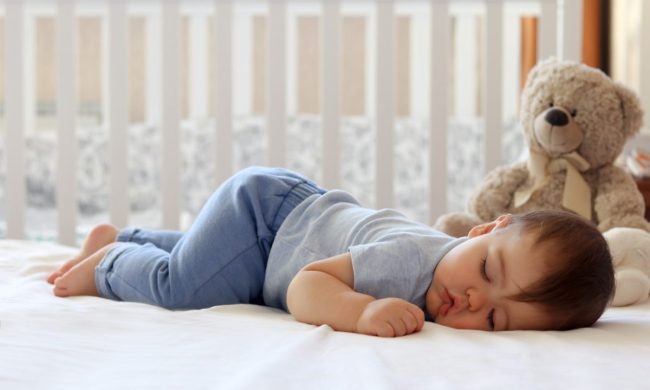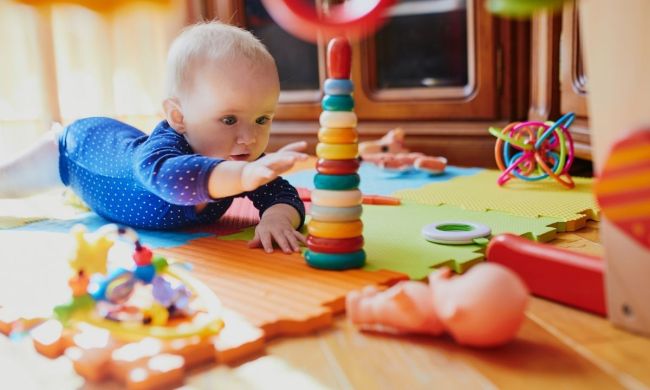
If you’re expecting, you cannot wait to see what your baby will look like. Gazing at the sonogram is one thing, but laying eyes on that squishy little face is another. A feature parents are excited to see in person are those gorgeous eyes. Will they be blue like mom’s or green like dad’s? Will they stay green or change to hazel? When do babies’ eyes change color? Only time will tell if your little one ends up with the eye color they are born with, but we will help give the time frame a bit of structure.
When a baby’s eyes change color
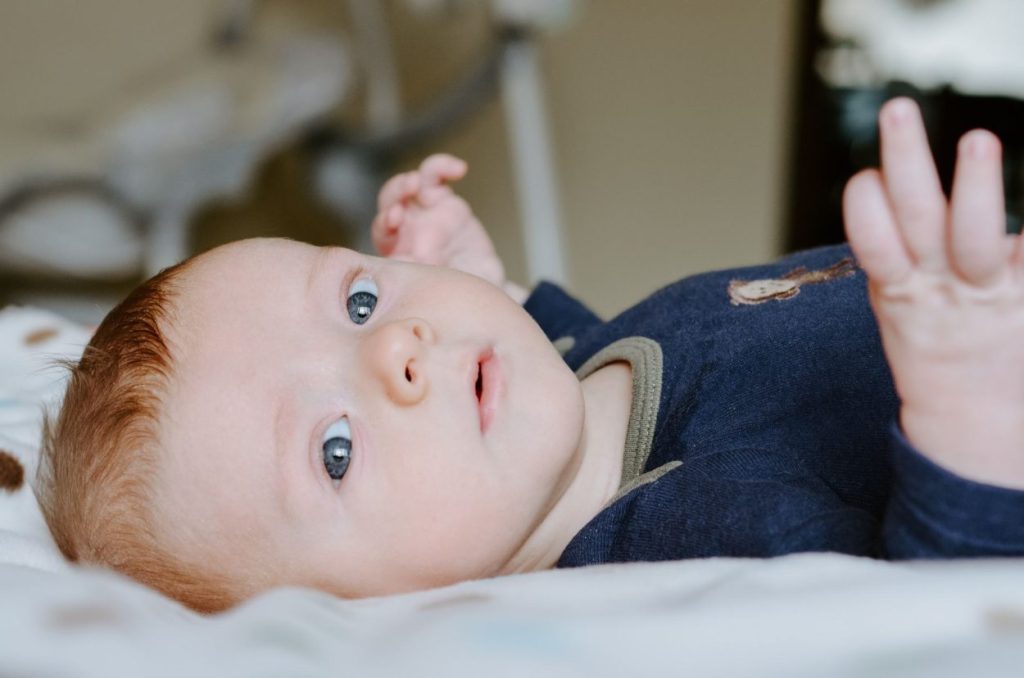
We’re sorry to report that it will be a bit of a waiting game to know the outcome of your child’s eye color, as science and genetics are crazy. When it comes to eye color, it’s a moving target, and the color your baby is born with may not be the final color of their eyes.
The first year is when eye color changes
The easy answer is that eye color could start to change as early as 3 months old and keep morphing until a child is a year old. For most of us, our eye color settled on a shade by the time we saw our first birthday. But let’s get into the complicated version.
A child’s eye color could shift during the first six months, but the color combination and pigment could continue to change until a baby is a year old. By 9 months old, though, the basic pigment color should be set — as in having green, blue, brown, or hazel eyes as the base color will be locked in at 9 months old.
An additional plot twist is a person’s eye color can continue to change until they are 6 years old, with a small percentage of people having their eyes change into adulthood. Some might find this frustrating, but it’s interesting to see how something like eye color has a mind of its own.
Why eye color changes

Why does eye color even change? We know genetics are behind everything from our hair color to blood type, and eye color is one more item on the list of things parents (and grandparents) pass down to kids. But there’s another part you might not be as familiar with.
The amount of melanin means a lot
Your skin, hair, and eye color are tied to the amount of melanin you genetically inherit. For your eyes, the melanin is triggered when the light hits your iris. When a baby is still in the womb, the iris hasn’t come into contact with light yet, so there’s no reaction.
Once your baby is born and those bright hospital-grade lights hit their precious little eyes, melanin mode is activated. It’s the same concept for going out in the sun and your skin getting darker. The more melanin produced, the darker and more a baby’s eyes will change color.
Since melanin affects eye color, if you keep your baby out of bright lights and limit light exposure, the production of melanin would be minimal, keeping the eye color lighter. We aren’t saying to try that, but scientifically, it would be possible.
How to guess your baby’s eye color
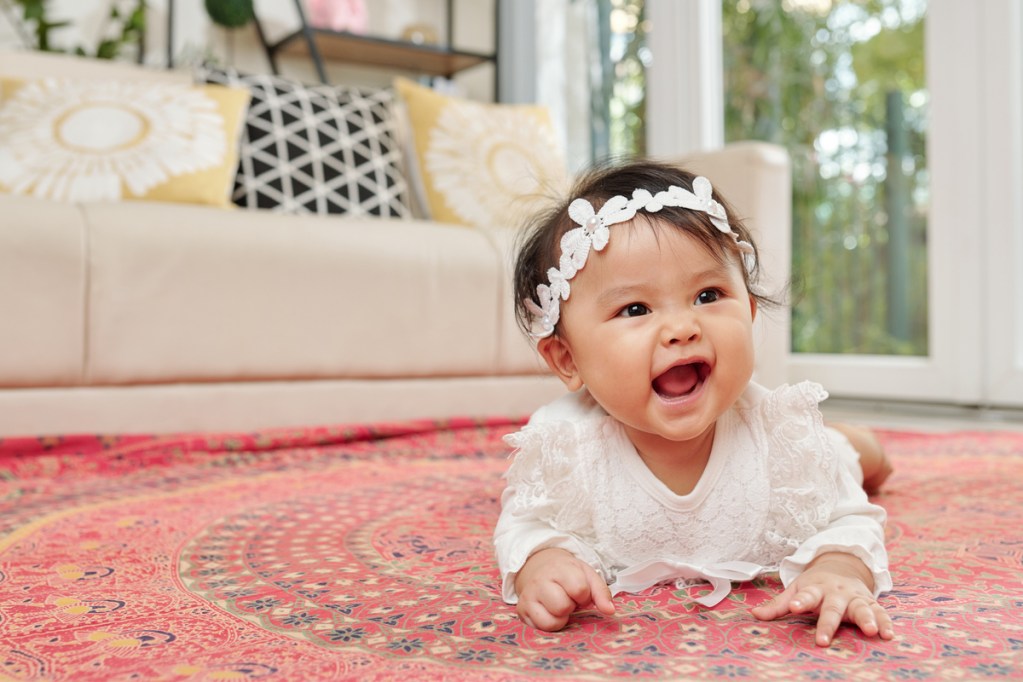
We aren’t all well-versed in genetics, so here’s a cheat sheet if you want a more educated guess about the outcome of your child’s eye color. Keep in mind that genetics love to throw curve balls, and eye color can skip a generation. Just because both parents have brown eyes doesn’t mean that little nugget will automatically have brown eyes.
Basic eye color cheat sheet
- If both parents have blue eyes, baby may get blue eyes.
- If both parents have brown eyes, with one grandparent having blue eyes, baby may get blue eyes.
- If one parent has brown eyes and the other parent has blue eyes, baby will have a 50% chance of blue or brown eyes, with a possibility of hazel or green eyes.
It’s a bit like blood types in having to do the genetic tree. You could go down the rabbit hole for precise statistics or know the cheat sheet and see what your child will likely end up with, eye-color-wise.
Other eye-guessing tips
- Brown, green, and blue eyes are the easiest to predict based on parent and grandparent eye color.
- Other color combos, hazel, and green, are more difficult to determine.
- If a baby has hazel eyes, they may darken to brown.
- If a baby has green eyes, they could end up a shade of hazel.
Getting to see what parts of you your baby inherits is always a fun little game. As the eyes are the windows to the soul, it’s interesting to see what color those windows will be. Whether you’re team blue, team green, or team brown, you’re going to have to wait it out a bit before your baby’s eye color is locked in. By the time your baby smashes their face into their first birthday cake, their eyes should be the color that will melt your heart for the rest of your days.

